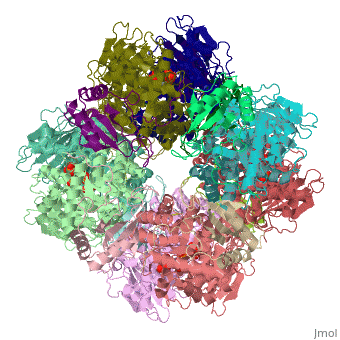Biological carbon fixation or сarbon assimilation is the process by which inorganic carbon (particularly in the form of carbon dioxide) is converted to organic compounds by living organisms. See also [1].
Organisms that grow by fixing carbon are called autotrophs, which include photoautotrophs (which use sunlight), and lithoautotrophs (which use inorganic oxidation).
Several autotrophic carbon fixation pathways are known:
1) Calvin cycle
Calvin cycle
2) Reverse Krebs cycle
Reverse Krebs cycle
3) Reductive acetyl CoA pathway
Reductive acetyl CoA pathway
4) 3-Hydroxypropionate bicycle
3-Hydroxypropionate bicycle

